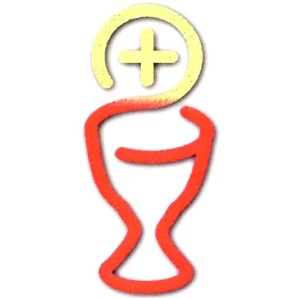This sermon was given by Rev Sue on Wednesday 30 October. You can listen again and read the transcript here:
There is an ancient Greek myth about a very rich king called Midas. He lived in a castle with his beautiful daughter. He was totally obsessed with money. He used to spend his days counting his hoard of gold coins.
One day Dionysus, the Greek God of wine was ambling through the castle rose garden. One of his friends, Silenus decided to lie down for a nap and got left behind. King Midas found him asleep and decided to use the situation to his advantage. He looked after him in the palace for a few days, and then escorted him back to Dionysus. According to plan, the god was very grateful and offered to grant Midas one wish. He chose that everything he touched would turn to gold. Dionysus asked if he was sure, but the king insisted.
The next day King Midas woke up and touched a chair. It immediately turned to gold. He ran around the palace touching all sorts of things – every one turned to solid gold. He was so happy. He sat down to breakfast. There were roses on the table. He picked one up to smell its fragrance, but of course it immediately became gold and lost its scent. He picked up a grape to eat it. Solid gold. His goblet of water, too. With a sinking heart, he realised what he had done. His beloved daughter entered the room. Midas in his distress, ran over to her and hugged her. She became a beautiful golden statue.
He was completely distraught. He prayed to Dionysus to take this curse away. Luckily for him, Dionysus agreed. He told Midas to bathe in a particular river. He obeyed and was amazed to see the gold flowing from his hands. He hurried home and was overjoyed to find his daughter, restored to life, running from the castle to greet him. He had learnt his lesson. He became a wise and generous ruler, bringing prosperity to the whole kingdom. When he died his people mourned their beloved king.
Midas thought he knew what he wanted. He had gold, he thought that it was making him happy, so he asked for an endless supply. How wrong he was. St Paul in today’s New Testament reading acknowledges this issue. We do not always know what we want, even less do we know what is good for us. But God in his mercy, searches our hearts and finds there his own Spirit, who is praying for us and through us according to the will of God, with sighs too deep for words. A lot of the time we can potter along nicely, chatting to God about our hopes and fears, and asking his protection for those we love. But most of us are familiar with the feeling of the bottom falling out of the world, when, sometimes quite suddenly, we are adrift, not knowing which way to turn or what to ask for. For Midas the worst thing wasn’t that he had signed his own death warrant by being unable to eat or drink. It was that he had killed the thing he loved the best, perhaps the only thing he truly loved, his daughter. For many of us it is with our families that we most suffer and feel out of control. We can bear our own pain, but for them we can but groan and sigh, hoping and praying that everything will work out for the best.
And Paul goes on to say that all things work together for good for those who love God. That is something I firmly believe, but statements like that have to be treated with care. For one thing, those we love may very well not be people of faith. Sometimes, too, their suffering is at least in part, their own fault. But we love God, and it is our faith that is the basis of our prayers. Hold fast to the stories in the gospel where Jesus healed and restored someone at the request of another.
The second thing to remember is that God’s idea of good may very well not be ours. Bad things happen, and sometimes they happen to good people. Never, ever, go down the road of wondering what you, or the ones you love, have done to deserve misfortune. True, it is sometimes our own fault, but much of the time we will never, in this life, understand God’s purposes. We have to let go, of even those dearest to us, and somehow continue to trust. And God, in his love and mercy, will hear our prayers.
